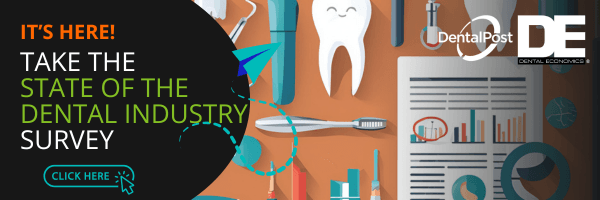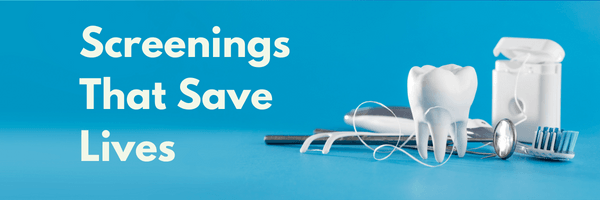.png)
Starting Your First Dental Job? Get Off On The Right Foot.
Posted June 06, 2022
Here’s what to expect with your first job and how to get your dental career off to a great start!
It’s that time of year again when a new graduating class of dental professionals is embarking on their careers. It’s been a long time since my first job, but I recall how excited I was to start my career. I wanted to impress my new colleagues and show them how seriously I took my job as a dental hygienist. Navigating the operatory, the team dynamics and personalities, and the general operations of a new workplace can be challenging and stressful especially when many dental practices lack any sort of formal onboarding programs. (If you are one of those practices, it’s never too late to start an employee onboarding program!)
Whether you are a new associate dentist, dental hygienist, dental assistant, or an employee working on the business side of the dental practice, the first six weeks on the job will require focus, energy, and flexibility. It will be a time of learning, demonstrating the value you can immediately offer—and, yes, being assessed by your manager.
After the initial excitement of the first day on the job, a positive attitude, resourcefulness, and eagerness to learn will help you power through the next few weeks as you get fully on your feet. A desire to be of true assistance to others will quickly endear you to other team members. And that can be the difference that makes for a better onboarding experience.
What Can You Expect During The First Days?
Most employers begin the onboarding process by introducing new employees to the members of the dental team. Even if all the following topics have been reviewed during the interview process, the first day will typically include a review of:
- The front-office and back-office flow and daily schedule
- The practice culture, mission, vision, and values
- The job description and duties, setting priorities for which systems need to be learned first
- Training expectations and study materials
- Who will do training for different aspects of the job and/or answer questions
- A schedule of milestones and performance assessments, if appropriate
IRS employment forms, vaccination records, OSHA and HIPAA compliance study materials, and an employee manual are also likely to be discussed on the first day. Completion of the necessary forms and training will occur within the first few days. Make sure to familiarize yourself with the dental practice laws of your state so that you can be sure your firm is in compliance.
If You Have Been Hired For the Dental Front Office
Even if you have completed a degree in office administration, over the next few weeks, you have a lot to learn. For example, you will have practice-specific practice management software to learn, dental-specific information to memorize, operational flow to understand, and practice policies for interacting with patients and other team members.
Setting priorities for what you need to learn (and develop competence in) first is important. Making a priority list with your employer/manager will enable you to focus, achieve, and begin contributing in earnest.
If You Have Been Hired For the Dental Clinical Team
You have completed a degree that has prepared you for the job and you have met your state certification requirements. However, each clinical team has its special way of working together. And then, each practice has its own assemblage of technology and preferred materials and methods to master. The principal doctor in the practice–or the doctor you will be assisting in a multi-doctor practice, will take the lead in familiarizing you with specifics of how you will work together, your clinical duties, and practice standards.
Use Emotional Intelligence For Success in Your First Job
Self-regulation of emotions is a hallmark of professionalism on the job. And what that means is that emotions spread rapidly from one person to another, so keeping negative emotions balanced with positive thoughts and outward calmness is important to helping the team get things done. Genuine awareness, empathy, hospitality, and respect for others’ feelings are all part of the job.
One of the most important findings to come out of Emotional Intelligence research is the affirmation that a sunny disposition and genuine smile create a neurological phenomenon that is contagious. The leaders in your workplace and your teammates will respond well to smiles that are genuine. A little wit also can destress you and those around you, break up the boredom, and jolt you out of post-lunch sleepiness.
How you support patients through their emotions may be the most important contribution you make to the dental practice at any given moment. Empathy for what the patient is experiencing and a genuine spirit of caring lead to moments of deeper connection that are meaningful to you and them. These moments can (and need to!) happen from the front to the back of the dental office as the patient experiences you and your dental practice. They help create the trust patients need to move forward with an examination, diagnosis, treatment, and compliant homecare. Connections with patients are among the things dental professionals proclaim they love most about their jobs.
Great Read:
An excellent book to read now and again as your career progresses is Harvard Business Review’s 10 Must Reads on Emotional Intelligence. Not only will it help you get along well with others on the job, but also help you become an effective participant and leader in a group, in patient relationships, and outside your work environment.
6 Employee Tips For Getting The Most Out Of The Onboarding Period
While adjusting to your job, there will be moments when you feel you cannot keep up with your duties and meet the day’s goals. Strive to do your best and recognize you are not alone in experiencing these feelings. While one shouldn’t complain, if you are unable to complete the day’s or week’s tasks, but you are working as hard and fast as you can, be candid with your manager and ask for feedback on what you can do more efficiently to better meet the work goals and timeframes. Be flexible and thoughtful. Maintaining optimism, cheerfulness, and compassion will have a tremendous impact on everyone you interact with.
1. Self-Awareness.
Be aware of your impact on others. Adjust your style of interaction to reduce stress, respect their needs, and be supportive. Observe and listen hyper-actively. Reflect before speaking. You have prepared yourself for this job, but you are once again in learning mode. Engage your curiosity muscles! Discover more about yourself as you discover how to best go about your responsibilities. Observe what drives you internally to do your best. Those are the intrinsic motivators that will sustain you through moments of uncertainty, time pressure, stressful conversations, negative moods, and even failures. Post-stress reflection and conversations with yourself, even journaling, can be epic learning moments that build resilience.
2. Resiliency.
Every dental professional needs resiliency. Without resiliency and intentional pauses to rest and restore, work demands and compassionate caring for many people’s needs lead to fatigue. What are the components of resiliency? Adequate sleep, recognition of what is within your control, and the ability to adapt and improvise under hard conditions. We often discover within ourselves recognizable creativity, deep strength, energy, and sense of purpose (life meaning) as we face down challenges and solve problems.
3. Questions.
You will have them. Work as self-resourcefully as possible but do ask questions. You need to know what is expected of you. Out of respect for others’ time and need to focus, save questions to ask them at a “good” time. Perhaps, schedule a time of day with your supervisor or mentor to ask all your saved questions.
4. Role Models.
Have you ever watched someone speak with confidence and wished you were able to speak like them? Have you ever admired someone for being able to quickly complete complicated tasks? When you observe someone who has developed confidence and competence in a skill set, actively learn from observing them. Instigate an admiring relationship that opens them up to mentoring you.
Often dental professionals surround themselves with positive, expert voices outside of their work environment. This happens through dental society meetings, online content, and continuing education opportunities.
5. Impact.
Ask yourself how you might quickly make an impact. Ask yourself what you need to do each day to stay on track in mastering the essentials of your job. Make sure you align expectations with your manager so you are in a position to deliver on some quick wins. Set personal goals and realistic timelines for meeting your goals. Your employer or supervisor will likely schedule meetings or invite you to impromptu ones. The express purpose is generally to discuss how you are doing as you acclimate to the work and work environment. Those check-ins will be opportunities to shine with your attitude, accomplishments, and intelligent questions.
6. Alignment.
Get to know the company culture and your co-workers. For some people, understanding working styles and company culture comes easily. If it doesn’t come easily to you, start small and don’t assertively suggest changes until you understand the “whys” behind the “hows”. The onboarding period is a time of alignment of values, vision, and expectations. Soon you will be taxiing on the runway, speeding up, and lifting off.
We connect and educate more than 900,000 job seekers in the U.S. and Canada to build better places to work through teams that excel.





.png)


